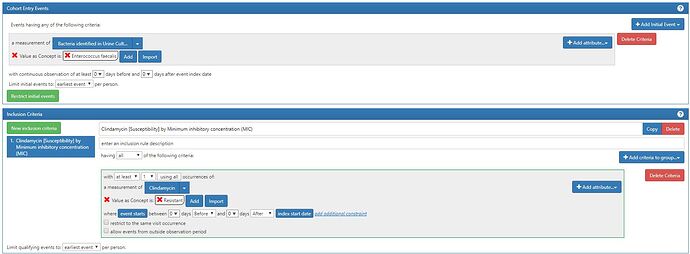Hi, all
We convert the result of culture test and antibiotics sensitivity test in EMR to CDM with fact_relationship table.
However, we recognize difference between the number of patient in Atlas and the number of patient as a result of sql query with fact_relationship.
In Atlas, we made a condition as follow
Do you have any idea to get the result which is the same to the result from sql with fact_relationship, in Atlas?
Thank you in advance
Aelan Park

